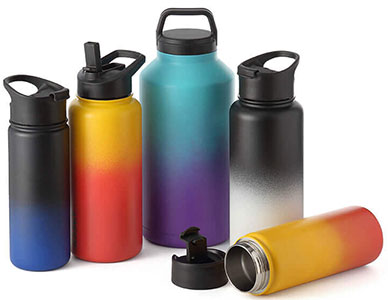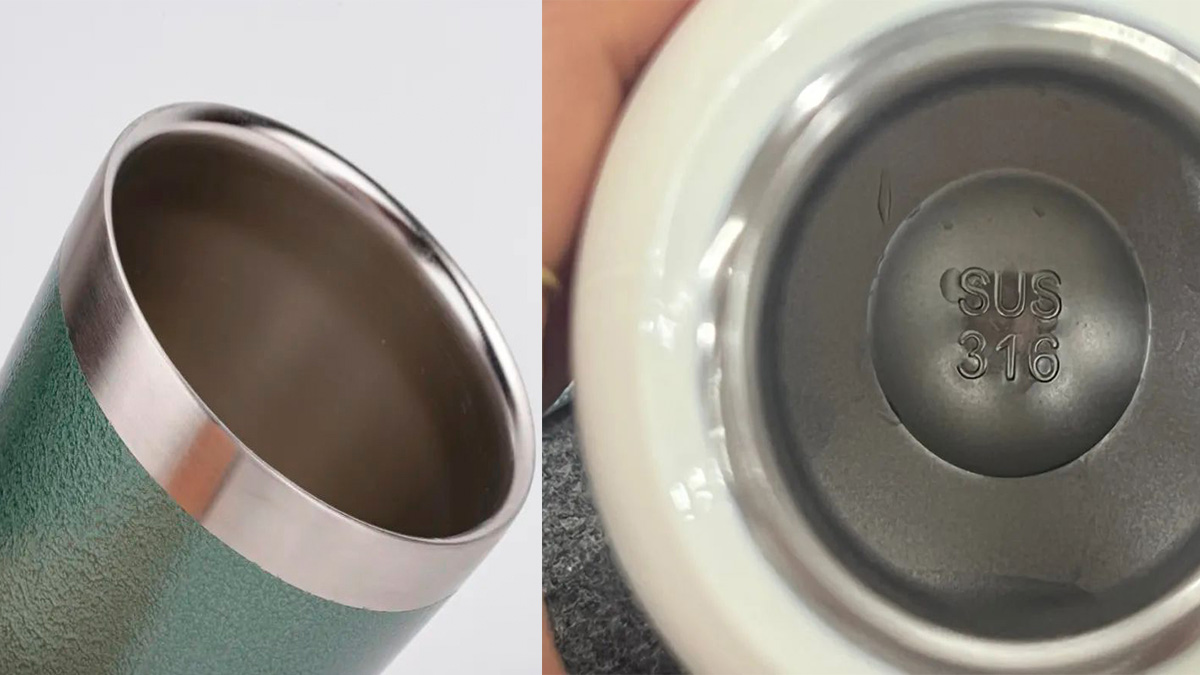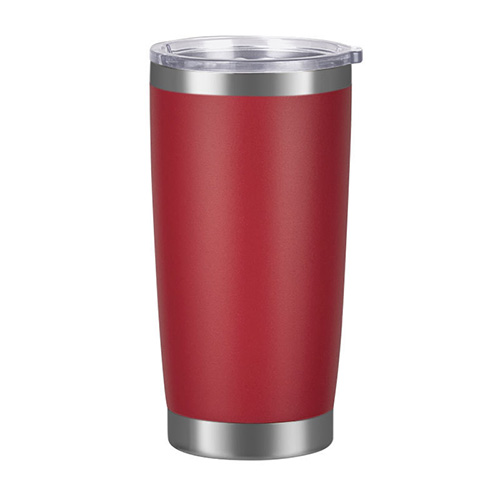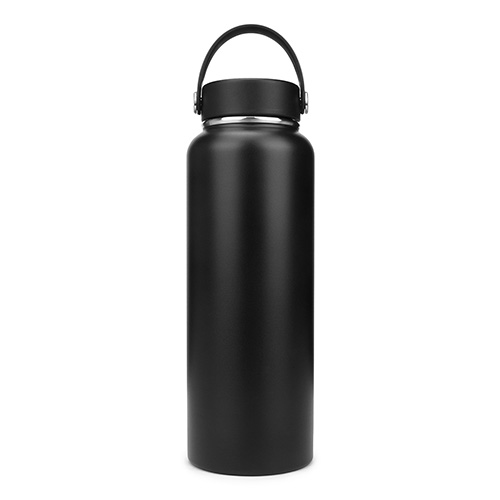In the fast-paced world of consumer goods, where innovation meets everyday needs, the shocking revelation that Stanley products contain lead has sparked a heated debate on corporate responsibility and consumer safety. Known for their tough and long-lasting drink ware that guarantees to keep your drinks at the perfect temperature, Stanley finds itself in the middle of a storm. This controversy isn’t just about what’s in your reusable water bottle. It’s a story of trust, health concerns and the delicate balance between following regulations and fulfilling moral obligations. As we dig deeper into Stanley’s response to the lead content in their products, questions about transparency, scientific credibility and the true cost of customer loyalty take center stage. This is not simply a discussion—it’s an essential examination of what happens when the products we rely on for our daily hydration face scrutiny due to potential health risks. Join us as we explore this matter further by delving into both industry standards and prioritizing consumer health and trust.
Before we dive into Stanley water bottles, let’s dig deeper into the damage caused by lead. Lead is a super toxic heavy metal that can seriously mess up your health if you consume too much of it. It wreaks havoc on various parts of your body, like your brain, blood, immune system, bones, and heart.
- Nervous System: Lead messes with the normal functioning of our nervous system, which can potentially cause stuff like feeling dizzy, getting headaches and having trouble focusing. It can also mess up kids’ brain development and make it harder for adults to think clearly.
- Blood System: Excessive exposure to lead can mess up your blood system, causing stuff like anemia, a drop in white blood cells, and a decrease in overall blood cell count. This can mess with your body’s ability to carry oxygen and fight off infections.
- Immune System: The presence of lead can mess up the immune system’s ability to work properly, which can make your immunity weaker and increase the chances of getting sick. You might experience things like mouth sores, getting sick often, feeling tired all the time, and having a fever.
- Skeletal System: The accumulation of lead in your bones can cause issues with bone density, like osteoporosis, and increase the risk of fractures. It messes with your body’s calcium metabolism, which is super important for keeping your bones healthy.
- Cardiovascular System: Lead, as a toxin, messes with the normal functioning of blood vessels and the heart. It can make blood vessels more leaky and mess up how the heart works, which could lead to serious stuff like cardiac arrest if not taken care of quickly.
To minimize the risk of lead exposure, especially in situations like renovating a new home, it’s super important to choose eco-friendly materials that have lower levels of lead. It’s also really helpful to regularly check for and avoid things like wholesale water bottles that contain lead in your everyday life. Doing these things can make a big difference in reducing the chances of getting lead poisoning.
2. Do Stanley products contain lead?
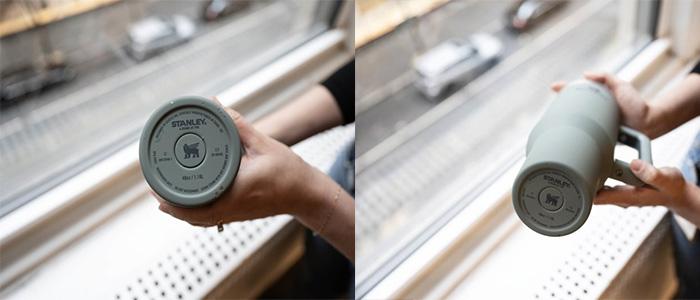
Yes, Stanley water bottles / Quencher tumblers cups do contain trace amounts of lead, as stated by the company itself. Stanley emphasizes that despite the inclusion of lead in the sealing process, Stanley products meet all U.S. regulatory requirements, including Proposition 65. The company also conducts tests for compliance through FDA accredited third-party labs. These tests verify that Stanley products adhere to strict guidelines, not only for lead but also for other substances like BPA/BPS, PFOS, and phthalates.
The company’s assurance and the measures taken to prevent exposure to lead suggest a commitment to consumer safety and product quality. In cases where the base cap of a product comes off, exposing the seal, Stanley products offer a Lifetime Warranty as part of their commitment to customer satisfaction and product integrity. When reports emerged that Stanley products contain lead, Stanley, a company based in the US, has admitted that there are small amounts of lead in their stainless steel water bottles and Quencher cups. But they made it clear that the lead is not on the surface of the bottles, so it won’t directly touch consumers. Even though they acknowledge the presence of lead, Stanley assures us that Stanley products are safe and meet all US regulations. On their website, they emphasize the great feature of their vacuum insulation technology of stainless steel water bottles and explain how they make their tumblers. According to Stanley, a standard pellet used to seal the vacuum insulation layer at the bottom contains some lead. However, this area is covered with a strong layer of stainless steel after sealing to prevent any contact between consumers and lead. Stanley also reassures us that any part of their stainless steel water bottles touching users or beverages inside is free from lead contamination. This assurance applies to other reusable water bottles made using the same technology as well.
Regarding safety concerns, Stanley’s website mentions that if by chance your reusable water bottle’s bottom cover falls off and exposes the sealant, you can take advantage of Stanley products’ lifetime warranty for replacement or repair. This shows how committed they are to customer safety and reliable stainless steel water bottles.
However, Kevin Wilkinson – an environmental chemistry professor at University of Montreal – warns us about water bottles showing signs of wear or damage possibly containing trace amounts of lead in water content. He emphasizes how important bio-availability is and what happens on stainless steel water bottles’ surfaces matters too. If lead is covered by another metal or stabilized somehow, then it shouldn’t be problematic. The concern arises when older containers have damaged or worn surfaces which could potentially expose people to lead exposure, especially with acidic drinks since stainless steel water bottle can leach out more lead quickly.
3. Green Sprouts’ proactive recall against Stanley
In a really impressive move, Green Sprouts totally stepped up in 2022 by quickly recalling tons of their stainless steel water bottles because they were worried about lead poisoning. This super fast response showed how much they care about keeping consumers safe and how aware they are of the potential risks, especially when it comes to stuff used by kids. The fact that Green Sprouts took action right away shows just how committed they are to health and safety standards of stainless steel water bottles, making sure their customers’ well-being is always the top priority.
Contrast this with Stanley’s approach to the discovery of lead in their stainless steel water bottles. While Stanley did acknowledge the presence of lead, their response was to assure the public of the safety of their reusable water bottles rather than initiate a recall. They emphasized that their manufacturing process, which includes the use of lead in a pellet to seal the vacuum insulation, is designed to ensure that the lead remains inaccessible to consumers. Stanley’s stance was based on compliance with U.S. regulatory requirements, asserting that their products are safe for use and do not pose a health risk to consumers.
This juxtaposition between Green Sprouts and Stanley highlights a significant difference in how companies might respond to potential health hazards in their stainless steel water bottles. On one hand, Green Sprouts’ immediate recall demonstrates a proactive, safety-first approach that errs on the side of caution, particularly in light of potential risks to children. On the other hand, Stanley’s decision to not recall but rather reassure highlights a different strategy that leans heavily on regulatory compliance and safety assurances based on product design and manufacturing processes.
4. What are the standards and regulations for water bottle manufacturers?
The difference in these responses between Stanley products and Green Sprouts products highlights the bigger debate about corporate responsibility and consumer trust, especially when it comes to water bottle manufacturers where ensuring water bottle safety is extremely important. It raises important questions about finding a balance between following regulations and having an ethical obligation to go above and beyond in safeguarding consumer health, particularly when vulnerable populations like children are involved.
Stanley’s public statements have been getting a lot of flak for not being scientifically sound and potentially misleading consumers about the safety of their products. Saying that the lead is completely sealed and poses no risk might be overlooking the bigger concerns about any presence of lead in consumer products, especially those used for food and drinks. Here are the regulations regarding drinkware safety:
- FDA Regulations: The FDA has rules called CGMPs specifically for bottled water. These rules say that bottled water companies have to make sure their products are made, put in bottles, stored, and moved around in clean conditions. They also have to protect the water sources from things that could make it dirty, and they have to test both the source water and the final water bottle for anything bad.
- Stainless Steel Bottle Industry Standards: For stainless steel bottles, the FDA makes sure that the materials used are safe for food and drinks, and they also check if the stainless steel water bottle manufacturing processes are effective. They set guidelines on how much of certain chemicals like BPA is acceptable. The industry also follows standards from ISO, such as ISO 22000 for making sure food is safe and ISO 9001 for managing quality.
- California Proposition 65: This law makes it necessary for water bottle manufacturers to put warnings on reusable water bottles that have chemicals known to cause cancer or reproductive harm. To comply with this requirement, many water bottle manufacturers have chosen to completely remove these chemicals from their drinkware.
- European Union (EU) Regulations: The EU’s Regulation (EU) No. 10/2011 makes sure that materials and products that come into contact with food, like stainless steel bottles, are safe and don’t have any harmful substances. It sets limits on how much substance can transfer from the materials to the food and requires testing and certification before these water bottles can be sold in the EU.
- Industry and Trade Association Standards: The International Bottled Water Association (IBWA) has its own standards, which are even stricter than the FDA’s. These standards cover source protection, monitoring, and safety practices like reverse osmosis and ozonation. What’s more, IBWA members have to go through surprise inspections by a third-party organization every year
The commitment to ensuring the safety and quality of water bottles is highlighted by these different layers of regulations, including federal and state rules as well as industry-specific standards. Water bottle manufacturers must diligently navigate through these regulations in order to maintain consumer trust and uphold public health standards. Click and read more: How Does Hydration Work?
5. Conclusion
In conclusion, the discussion about Stanley products containing lead is a wake-up call for the industry to rethink its moral compass and for consumers to demand brands to be more transparent and responsible. When it comes to drinkware safety, it’s absolutely crucial to highlight the efforts of manufacturers like BulkFlask who are totally committed to following strict regulations governing water bottles. Our dedication in providing safe and top-notch water bottles has not only set a standard within the industry but has also significantly boosted our reputation among customers. As the industry keeps evolving, we never stop adhering to strict regulations and producing high-quality water bottles, promising in gaining consumer trust and creating a safer and more sustainable future.
